🍎 Nutrient-Dense Diet: Your Ultimate Guide to Healthy Eating and Lasting Energy 💪

Are you feeling tired, sluggish, or out of balance lately? Maybe your diet needs a nutrient upgrade! A nutrient-dense diet is the secret weapon to fuel your body, sharpen your mind, and enhance your overall well-being without starving or stressing over calories. In this complete guide, we’ll walk you through everything you need to know about eating better, smarter, and more deliciously. Let’s dive in!
🥦 What Is a Nutrient-Dense Diet?
A nutrient-dense diet focuses on foods that provide the highest amount of vitamins, minerals, fiber, and antioxidants for the fewest calories. These are real, whole foods—like colorful fruits, leafy greens, lean proteins, and whole grains—that help your body function at its best. It’s not about eating less. It’s about eating right.
💡 Why Choose Nutrient-Dense Foods?

- ⚡ Boosts daily energy levels
- 🧠 Enhances brain clarity and mood
- ❤️ Supports heart and immune health
- 📉 Helps maintain a healthy weight naturally
- 🛡️ Reduces the risk of chronic diseases
Unlike processed foods loaded with sugar, salt, and unhealthy fats, nutrient-dense foods nourish your cells and give you clean, lasting energy throughout the day.
Read more: “15 Healthy Eating Habits for Better Energy and Wellness”
🥗 Top Nutrient-Dense Foods You Should Eat Daily
Here’s a list of powerful, nutrient-rich foods that should be a staple in your kitchen:
- Leafy Greens: Spinach, kale, arugula, Swiss chard
- Cruciferous Vegetables: Broccoli, cauliflower, Brussels sprouts
- Berries: Blueberries, strawberries, raspberries
- Fatty Fish: Salmon, sardines, mackerel
- Whole Grains: Quinoa, brown rice, oats
- Legumes: Lentils, black beans, chickpeas
- Nuts & Seeds: Chia seeds, flaxseeds, almonds
- Fermented Foods: Yogurt, kefir, kimchi, sauerkraut
These foods are not only high in nutrients but also naturally low in unhealthy fats and sugars.
🧃 Hydration and Nutrient Absorption

Don’t forget your water! Even the best nutrient-dense diet won’t work properly without proper hydration. Water helps your body absorb nutrients, flush out toxins, and keep everything running smoothly. Aim for 6–8 glasses daily, and include herbal teas or infused water for variety.
🍽️ How to Build a Nutrient-Dense Plate
Use the “Half-Plate Rule” to get started:
- 🥬 50% of your plate should be vegetables (especially non-starchy)
- 🍗 25% should be lean protein (like chicken, tofu, eggs)
- 🍠 25% should be whole grains or complex carbs (like quinoa or sweet potato)
Add healthy fats (like avocado or olive oil) in moderation and season with herbs instead of heavy sauces or salt.
⏰ Easy Tips to Transition to a Nutrient-Dense Lifestyle
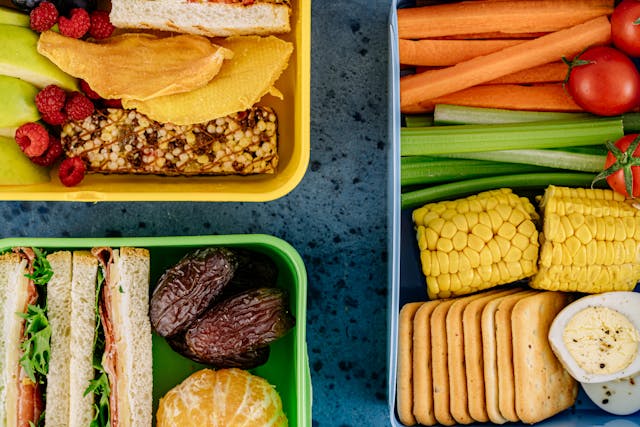
Switching to a nutrient-dense diet doesn’t have to be overwhelming. Try these simple steps:
- 🛒 Shop the outer aisles of the grocery store where fresh foods live
- 🥤 Replace sugary drinks with water or herbal tea
- 🥣 Make one meal per day a “vegetable-heavy” dish
- 📅 Meal prep healthy snacks like boiled eggs, fruit, and hummus
- 📱 Track your meals and energy levels for a week—you’ll notice the change!
👩⚕️ What Nutritionists Say About Nutrient-Dense Eating
According to registered dietitians, a nutrient-dense diet is one of the most sustainable ways to stay healthy in the long run. It’s not a fad or short-term fix. It’s a way of life that reduces inflammation, supports hormone balance, and improves gut health—all without needing to count every calorie.
🌍 Is a Nutrient-Dense Diet Eco-Friendly?
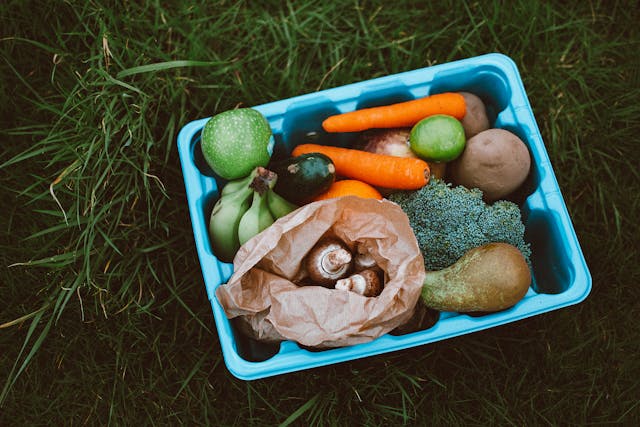
Absolutely! Eating more plant-based, seasonal, and minimally processed foods reduces your carbon footprint. Choosing local and organic when possible supports both your health and the environment.
😋 Sample 1-Day Nutrient-Dense Meal Plan
- Breakfast: Greek yogurt with berries, chia seeds & honey 🍓
- Lunch: Quinoa salad with chickpeas, kale, and lemon dressing 🥗
- Snack: Sliced apple with almond butter 🍎
- Dinner: Grilled salmon with steamed broccoli & brown rice 🐟
- Drink: Herbal green tea or lemon water 🍋
This plan offers a perfect balance of fiber, protein, and healthy fats—all from real food.
🔍 Hidden Sugars & Pitfalls to Watch Out For
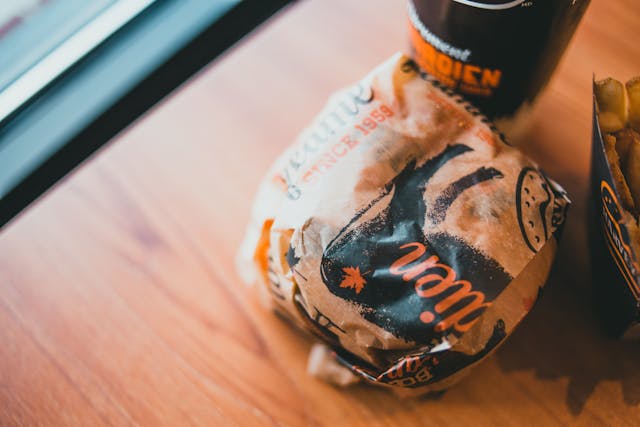
Even when you’re eating “healthy,” some packaged foods can mislead you. Check labels for added sugars, artificial ingredients, and sodium levels. Common culprits include:
- “Low-fat” yogurts loaded with sugar
- Flavored oatmeal packs
- Granola bars with corn syrup
- Vegetable chips with artificial additives
Read more: 15 Healthy Eating Habits to Boost Energy & Wellness 🌿
📈 Long-Term Benefits of a Nutrient-Dense Diet
Adopting a nutrient-dense diet improves:
- 🌟 Energy and focus throughout the day
- 🧘 Mental wellness and mood stability
- 🦴 Bone and joint strength
- 💪 Immune resilience and faster recovery
Over time, you’ll notice clearer skin, improved digestion, and a general sense of balance in your life.
🧠 Unlocking the Deeper Power of a Nutrient-Dense Diet: The Real-Life Transformation

When most people hear the term nutrient-dense diet, they immediately picture green smoothies, quinoa bowls, and avocado toast. While those are indeed great examples, the real magic of this eating style runs much deeper. It’s not just about trendy foods—it’s about transforming the way you relate to your meals, your body, and even your energy levels throughout the day.
🌿 From Fatigue to Fuel: Real Benefits You Can Feel
Have you ever noticed how certain meals leave you drained, while others leave you feeling light, focused, and energized? That difference comes down to nutrient density. When your body gets what it truly needs—vitamins, minerals, fiber, and healthy fats—it runs like a well-oiled machine. Blood sugar stays stable, digestion improves, and your mental fog starts to clear. A nutrient-dense diet doesn’t just fuel your body; it resets it from the inside out.
People who switch to this way of eating often report:
- ⚡ More sustainable energy all day (without relying on coffee)
- 💤 Better, deeper sleep at night
- 🍽️ Reduced cravings and emotional eating
- 💪 Improved workouts and muscle recovery
- 🧘 Sharper focus and better emotional regulation
These are not placebo effects—there’s real science behind it. The balance of macronutrients and micronutrients in a nutrient-dense diet supports hormonal health, boosts neurotransmitters like serotonin and dopamine, and keeps the digestive tract functioning optimally.
🥕 Nutrient Density vs. Calorie Density: Why It Matters

Let’s compare two meals:
- 🍩 A donut: 300 calories, high sugar, low fiber, almost zero nutrients
- 🥗 A quinoa salad with chickpeas and spinach: 300 calories, high fiber, loaded with iron, magnesium, protein, and antioxidants
Both meals give you the same number of calories, but one gives you short-term pleasure and a crash, while the other fuels you for hours. This is why a nutrient-dense diet is superior to simply counting calories or following trendy restriction-based diets. It’s not about eating less—it’s about eating smart.
👨👩👧👦 Making It a Lifestyle: How Families Can Thrive Together
One of the biggest myths about nutrient-dense eating is that it’s too complicated or expensive for families. But the truth is, once you simplify your grocery list and focus on whole ingredients, it becomes easier—and often cheaper—than relying on packaged snacks or takeout meals.
✅ Buy seasonal produce in bulk
✅ Cook large batches of beans, lentils, or soups for the week
✅ Get your kids involved in cooking—let them choose colorful veggies or mix their own smoothie bowls
✅ Swap fast food nights with “build your own” healthy taco bowls or pizza on whole grain flatbread
Eating a nutrient-dense diet as a family encourages lifelong healthy habits, lowers risk of childhood obesity, and improves attention and behavior in kids.
Read more: Complete Guide to Healthy Eating and Nutrition for a Better Life 🍎
🌎 Global Impact: How Your Plate Can Help the Planet

Choosing a nutrient-dense diet is not only good for your health—it’s good for the Earth. Plant-forward, unprocessed foods require fewer resources to produce, lower carbon emissions, and support biodiversity. Eating more lentils, grains, local produce, and less processed meat can drastically reduce your environmental footprint. It’s a win-win: better nutrition, better planet.
🥣 Healing Through Food: The Gut-Brain Connection
Did you know your gut produces nearly 90% of your serotonin—the “happy hormone”? That’s why what you eat directly impacts your mood, mental clarity, and emotional health. A nutrient-dense diet rich in fiber, fermented foods, and omega-3 fats nourishes your gut microbiome, balances hormones, and even helps manage anxiety and depression symptoms.
Some great gut-friendly additions include:
- 🥬 Sauerkraut or kimchi with lunch
- 🥛 Kefir or plain yogurt as a snack
- 🐟 Fatty fish like mackerel or sardines twice a week
- 🌰 Prebiotic-rich foods like garlic, onions, and bananas
⏳ From Quick Fix to Long-Term Wellness

Many diets promise fast results—keto, low-carb, paleo—but what happens after the first 30 days? Most people return to old habits because those approaches are unsustainable. A nutrient-dense diet is different. It’s not a crash diet—it’s a nourishing, enjoyable, and flexible way to eat for life.
Here’s why it works long-term:
- 📅 No need for calorie-counting apps
- 🧂 No boring, bland food
- 🧃 No reliance on supplements or powders
- 🍽️ Real meals made from real food you can actually enjoy
🌞 Morning to Night: Living the Nutrient-Dense Life
Here’s how a typical day on a nutrient-dense diet might look and feel:
- Morning: Wake up refreshed without an alarm, feeling mentally clear
- Breakfast: Oats soaked overnight with chia seeds, almonds, and fruit 🍓
- Midday: No energy crash, focused at work or in school
- Lunch: Lentil soup with avocado toast 🥑
- Afternoon Snack: Hard-boiled egg or trail mix
- Dinner: Grilled veggies with brown rice and baked fish 🐟
- Evening: Light herbal tea, restful digestion, deep sleep 😴
This way of living becomes second nature. The food fuels you, not frustrates you.
🎯 Busting the Myths Around Nutrient-Dense Diets
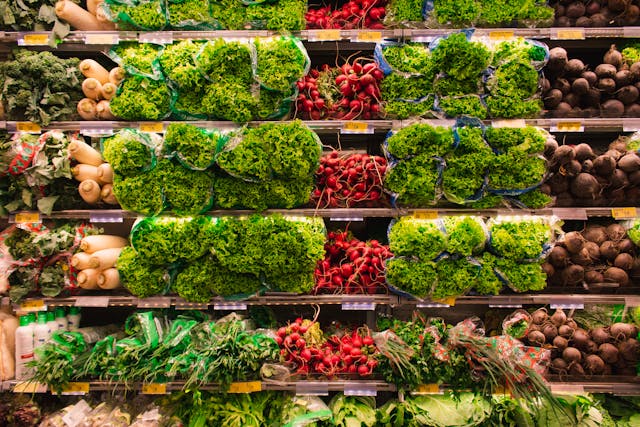
Let’s address some common misconceptions:
- “It’s too expensive.” – Not true. Canned beans, frozen vegetables, and whole grains are budget-friendly.
- “I don’t have time to cook.” – Meal prep once a week, and you’re done. Simple recipes take 15 minutes or less.
- “I’ll feel hungry.” – You won’t. Nutrient-rich meals keep you fuller longer thanks to fiber and protein.
- “Healthy food is boring.” – Only if you make it that way. Spices, sauces, and variety change everything.
📣 You Deserve to Feel This Good
You don’t need to wait for a diagnosis or a crisis to start eating better. The best time to embrace a nutrient-dense diet is now. Your body craves balance, not restriction. Nourish it with intention, and it will reward you with strength, clarity, and resilience.
Don’t worry about being perfect. Focus on being consistent. Even one nutrient-rich meal a day is a powerful step toward a more energized, vibrant you.
📊 Tracking Progress with a Nutrient-Dense Diet: Small Wins Matter
![]()
One of the most motivating parts of shifting to a nutrient-dense diet is seeing real progress—not just on the scale, but in your energy, focus, and mood. Instead of obsessing over numbers, try tracking how you feel every week. Are you waking up with more clarity? Are cravings fading? Is your digestion smoother? These are all signs your body is thriving.
You can keep a simple food and mood journal. Write down what you eat and how you feel two hours later. Over time, patterns will emerge. You’ll learn what energizes you, what slows you down, and what foods help you feel your best. That’s the power of mindful, nutrient-rich eating—it’s tailored to you.
Read more: “Balanced Nutrition for Daily Wellness: Your Complete Guide to Eating Right Every Day 🥗”
💬 Real Talk: Everyone’s Journey Looks Different
It’s important to remember that your journey with a nutrient-dense diet won’t look like anyone else’s. Some people feel an immediate shift in energy; others may take weeks to adjust, especially if they’re transitioning from a highly processed diet. Be patient. This is not about perfection—it’s about consistent progress and building lifelong habits that actually feel good.
If you slip up and have a junk-food day, don’t stress. Just reset with your next meal. Your body is forgiving when you nourish it regularly. Celebrate every healthy choice, no matter how small. Each one adds up to a stronger, healthier version of you.
🧭 Your Personalized Path Forward
A nutrient-dense diet is more than just a health trend—it’s a powerful, personal path to better living. Whether you’re a busy parent, a student, a fitness enthusiast, or simply someone who wants to feel better, this way of eating fits your lifestyle. Keep things simple, listen to your body, and build meals that both satisfy and support you.
You’re not just eating food—you’re fueling your future. 🥗💖
✅ Final Thoughts: Small Steps, Big Results 🌱

Healthy eating doesn’t have to be restrictive or complicated. The power of a nutrient-dense diet lies in its simplicity. Start with small swaps—white rice for brown rice, soda for lemon water, chips for nuts—and watch how your body thanks you. Stay consistent, stay curious, and enjoy the process of nourishing yourself naturally.
To explore more about nutrient-rich eating habits, visit this detailed research article from National Center for Biotechnology Information (NCBI), which explains the long-term benefits of nutrient-dense diets backed by science.
You can also check out this practical guide from Academy of Nutrition and Dietetics that shows how to eat nutrient-dense foods even on a tight budget.
🌿 Remember: Eating well is not about perfection. It’s about progress. One nutrient-rich bite at a time!
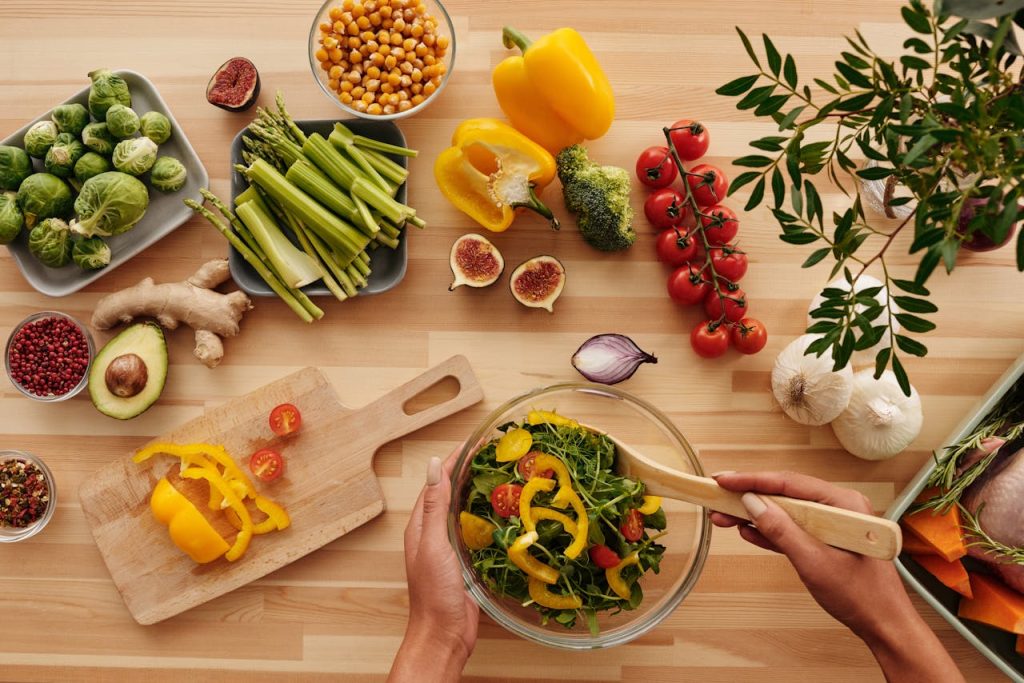
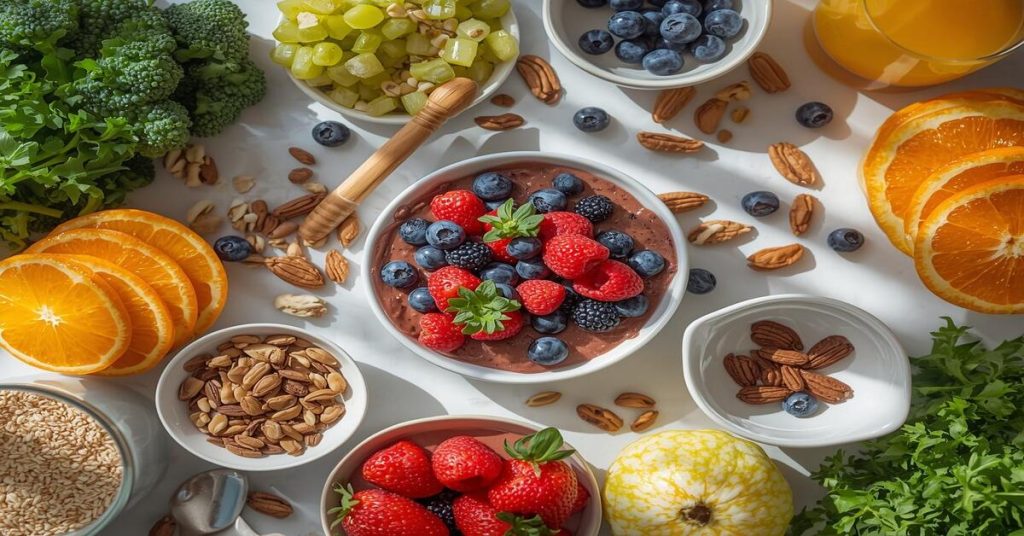
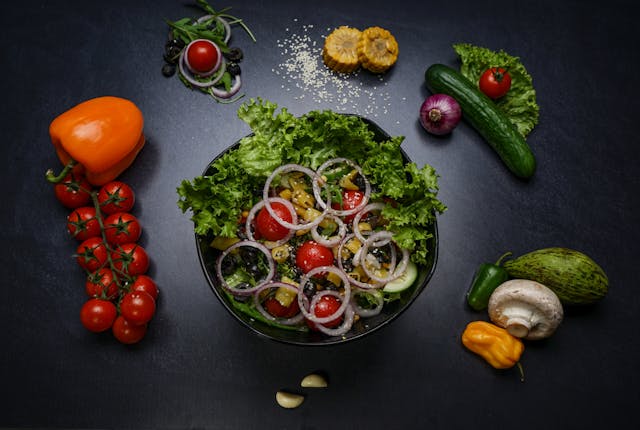
Pingback: Top 10 Nutrient-Dense Meals to Boost Energy, Burn Fat & Improve Health Naturally